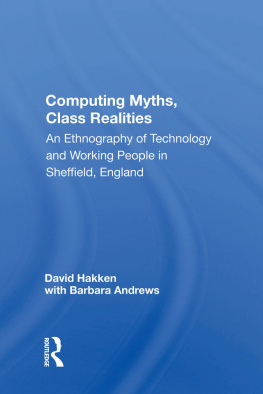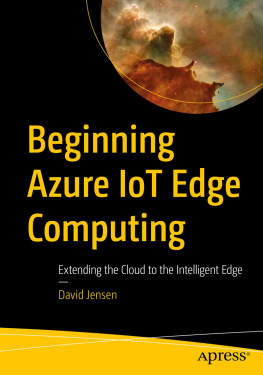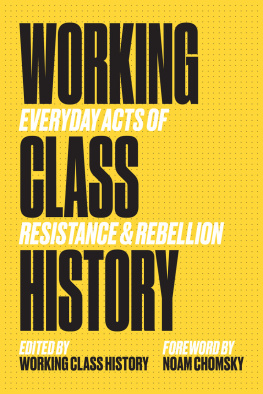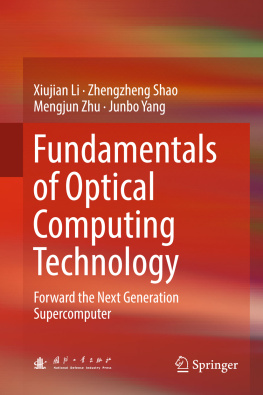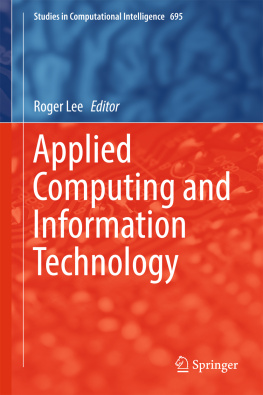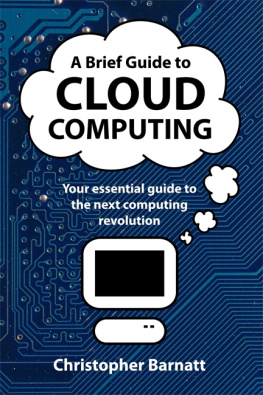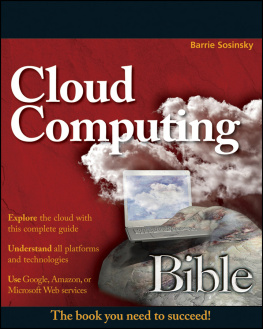Computing Myths, Class Realities
Conflict and Social Change Series
Series Editors
Scott Whiteford and William Derman
Michigan State University
Computing Myths, Class Realities: An Ethnography of Technology and Working People in Sheffield, England, David Hakken with Barbara Andrews
The Culture of Protest: Religious Activism and the U.S. Sanctuary Movement, Susan Bibler Coutin
Literacy, Power, and Democracy in Mozambique: The Governance of Learning from Colonization to the Present, Judith Marshall
Gender, Sickness, and Healing in Rural Egypt: Ethnography in Historical Context, Soheir A. Morsy
Life Is a Little Better: Redistribution as a Development Strategy in Nadur Village, Kerala, Richard W. Franke
igame! igame! Struggle and Social Change in a Nicaraguan Urban Community, Michael James Higgins and Tanya Leigh Coen
Manufacturing Against the Odds: Small-Scale Producers in an Andean City, Hans C. Buechler and Judith-Maria Buechler
The Bushman Myth: The Making of a Namibian Underclass, Robert J. Gordon
Surviving Drought and Development: Ariaal Pastoralists of Northern Kenya, Elliot Fratkin
Harvest of Want: Hunger and Food Security in Central America and Mexico, edited by Scott Whiteford and Anne E. Ferguson
Singing with Sai Baba: The Politics of Revitalization in Trinidad, Morton Klass
The Spiral Road: Change in a Chinese Village Through the Eyes of a Communist Party Leader, Huang Shu-min
Forthcoming
"I Am Destroying the Land!" The Political Ecology of Poverty and Environmental Destruction in Honduras, Susan C. Stonich
The Myth of the Male Breadwinner: Women and Industrialization in the Caribbean, Helen I. Safa
Computing Myths, Class Realities
An Ethnography of Technology and Working People in Sheffield, England
David Hakken
with Barbara Andrews
First published 1993 by Westview Press, Inc.
Published 2018 by Routledge
52 Vanderbilt Avenue, New York, NY 10017
2 Park Square, Milton Park, Abingdon, Oxon OX14 4RN
Routledge is an imprint of the Taylor & Francis Group, an informa business
Copyright 1993 Taylor & Francis
All rights reserved. No part of this book may be reprinted or reproduced or utilised in any form or by any electronic, mechanical, or other means, now known or hereafter invented, including photocopying and recording, or in any information storage or retrieval system, without permission in writing from the publishers.
Notice:
Product or corporate names may be trademarks or registered trademarks, and are used only for identification and explanation without intent to infringe.
Library of Congress Cataloging-in-Publication Data
Hakken, David.
Computing myths, class realities : an ethnography of technology and working people in Sheffield, England / David Hakken with Barbara Andrews.
p. cm. (Conflict and social change series)
Includes bibliographical references.
ISBN 0-8133-8135-5 ISBN 0-8133-8312-9 (pbk.)
1. Working classEnglandSheffieldEffect of automation on. 2. EmployeesEnglandSheffieldEffect of automation on. 3. ComputersSocial aspectsEnglandSheffield. 4. EthnologyEnglandSheffield. 5. Sheffield (England)Social life and customs. I. Andrews, Barbara, 1944- . II. Title. III. Series.
HD8400.S52H35 1993
305.5'62'0942821dc20
92-44799
CIP
ISBN 13: 978-0-367-01604-3 (hbk)
Contents
- PART ONE
Studying Computerization - PART TWO
Describing Computerization - PART THREE
Analyzing Computing Structurally - PART FOUR
Making Computerization
Guide
Fieldwork with a family of five has both advantages and disadvantages, but it can't in any case be done without a great deal of help from a community of support. For their intellectual, moral, and practical support, we thank Janet, Alan, Jamie, and Ruth Baldwin; Jenny Owen, Graham Burkin, Jack, and Ruth; and Debby Glass, Matthew Toulmin, and Eleanor. Our project could not have progressed very far without continued contact with organizations and individuals in the labor movement and working class, for which we thank especially Ken and Lillian Randell and Ken Curran. Similarly, we needed the support of program officers and community contacts and access to academic resources; our thanks to Michael Barratt Brown, John Darwin, Mike Fitter, Bob Fryer, John Grayson, John Halstead and Margaret Gent, Bob and Jill Heath, and Bill Hampton.
In the conventions of anthropology, it is not appropriate to identify by name each informant whose comments we quote or whose perspective we relate in some way, though it is appropriate to name those who publish or speak publicly. The former convention exists to protect those who might be harmed and is of some value as a means of soliciting cooperation. However, there are problems with the anonymous discourse that follows from these conventions, including the creation of an aura of generality that is not warranted. Moreover, the practice inevitably implies that the really valuable information and analysis comes from named "experts." Most field-workers would readily acknowledge that this is simply not so.
To protect those whose participation was given freely, we have generally employed pseudonyms in our text, using real names only in relation to the public speeches of public figures or the written works of scholars or local journalists. Nonetheless, we wish to acknowledge here those who consented to be interviewed, allowed us to participate in activities, and in some other concrete way participated in our research. In addition to those mentioned above, they include:
- In the Sheffield business community, Mary Collinson, Neal Goodenough, John Hambridge, John Handscome, and Dave Smith.
- At and through the Sheffield District Council, Daryl Agnew, Phil Asquith, Ted Baldwin, Alan Beaver, Clive Betts, Jean Bickerstaff, David Blunkett, M.P., Steve Bond, Geoff Green, Ed Guyton, Joan Harrison, Jo Henderson, Ann Howard, Bruce Hughes, Helen Jackson, Steve Jackson, Rob Jones, Alan McGauley, Joel Miskin, Emma Morgan, Brigitte Pemberton, Gordon Reid, Brian Salisbury, Dan Sequerra, Allison Spencer, and Ann Stewart.
- In our Greystones neighborhood, Kate Green, Terry Howard, Paul, Chris, and Allison Tildsley, Mrs. Gibson, and Mrs. Armstrong.
- At Northern College of Adult Education, Pam Cole, Ed Ellis, Ray Hearn, Keith Jackson, Ian Linn, Colin Thunhurst, Jill Venard, and Ruth Winterton.
- At Sheffield Polytechnic, Ruth Aylett, Doug Bell, Malcolm Brewer, Kath Corfield, Barry Hines, Fergus Murray, and Den Paine.
- At Sheffield University, Harry Barnes, M.P., Marie Brazil, Pam Briggs, Bernard Burns, Cath Cassell, Phil Healey, Jill and Bob Heath, Nick Howard, Clive Opie, Alan Wellington, and Phil Wright.
- In the trade union and political movement, Martin Ashworth, Roger and Joan Barton, Rap Bird, Alan Burrows, Richard Caborn, M.P., Brian Clarke, Ken Curran, Jr., Dave Feikart, Vi Gill, Roy Harrison, Pam Holmes, Jean Miller, Derek Simpson, Seb Smoller, Julia Stallibras, Jesse Taylor, and Nans Thompson.
- In the South Yorkshire women's movement, Val Binney, Ruth Blunkett, Mndy Bryce, Betty Heathfield, Fran Holmwood, Angela Kalish, Ruth Midgeley, Wendy Miller, Jean in Thurnscoe, and Pam Stubbs.
- Outside of South Yorkshire in Britain, Sue Berger, Carlos Dabezies, John Field, Jane Humphries, Rog Smith, Robin Williams, Jonathan Winterton, and Jane Woddis.

